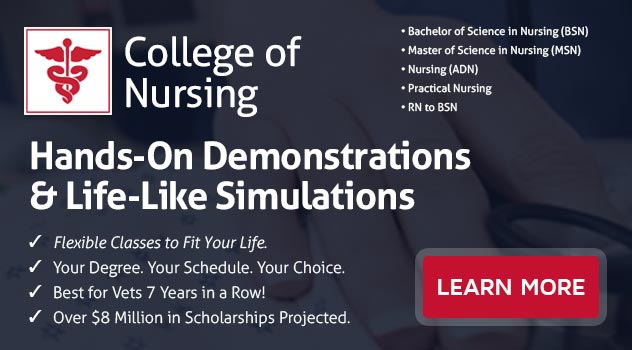Is BSN Better than RN? Which is Right for Me?
Have you been thinking about a nursing career? Then you should know that there are many paths that you can follow to join this field. The two most common paths are pursuing an associate degree in nursing (ADN) or a bachelor’s degree program (BSN). Because both paths will help you become a registered nurse (RN), it can be quite confusing on which is the better option. Let’s delve deeper at the two options so that you can decide on the best way to start your nursing career.
ADN vs. BSN
Education requirements
Becoming a registered nurse through an ADN program will take you between 15 to 24 months, depending on the speed of the program you select. Some nurses opt for the ADN path to join the workforce more quickly and they can pursue their BSN later on through an RN-to-BSN program. If you have a degree in a different field, you can join the nursing field by pursuing a BSN degree which you can complete within a shorter time.
Different job types
Nurses with an ADN often perform simple nursing care like recording patient symptoms, educating patients on diseases, using simple medical equipment, and often consults with doctors and other nurses.
However, earning a BSN comes with more responsibility and a higher pay. A BSN can also open leadership and management positions. Other nursing specialties such a public health, nurse research and nurse education might require an MSN, a natural step for BSN nurses who want to further their career.
Job potential
Looking ahead, nurses with BSN often have more jobs to choose from. According to a recent study that examined over 1.3 million nursing jobs that had been posted for a period of over one year, it revealed that RNs with ADNs only qualified for 53 percent of all posted jobs while those with BSNs qualified for more than 80 percent of the posted jobs.
Qualities and Skills Needed to Fill BSN and ADN positions
Nursing is a rewarding career that requires some hard skills. Apart from having a lot of medical knowledge, you should also be able to perform come procedures including drawing blood and giving vaccinations. These days, nurses have to be tech-savvy as they have to always update patient charts to the hospital’s database.
Soft skills are also essential. As an RN, you should be empathetic, have strong communication skills to relay information to both patients and their families and to be able to work effectively with other hospital staff.
Other important nursing skills include:
- Flexibility
- Critical thinking
- Desire to learn
- Physical endurance
- Attention to detail
Whether you're just starting out as a nurse or have already been working in nursing for several years, there are many options available. One of them is to earn a Bachelor of Science Degree in Nursing. ECPI University offers this course at an accelerated rate. For more information, connect with a helpful admissions advisor today.
It could be the Best Decision You Ever Make!
DISCLAIMER – ECPI University makes no claim, warranty, or guarantee as to actual employability or earning potential to current, past or future students or graduates of any educational program we offer. The ECPI University website is published for informational purposes only. Every effort is made to ensure the accuracy of information contained on the ECPI.edu domain; however, no warranty of accuracy is made. No contractual rights, either expressed or implied, are created by its content.
Gainful Employment Information – RN to BSN - Bachelor’s
For more information about ECPI University or any of our programs click here: http://www.ecpi.edu/ or http://ow.ly/Ca1ya.





